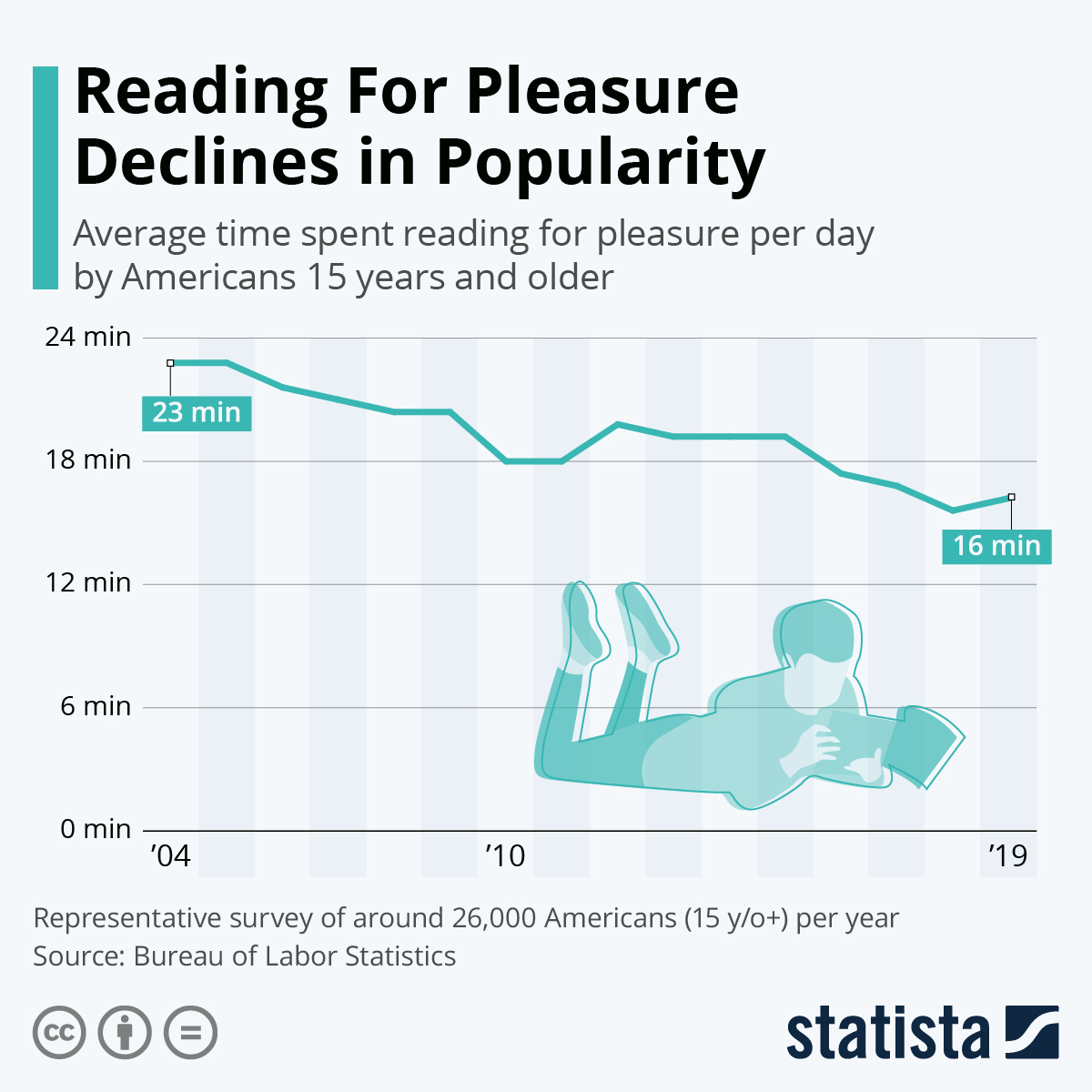Over the last 30 years, reading has become less and less popular. According to the American Psychology Association, “Less than 20 percent of U.S. teens report reading a book, magazine or newspaper daily for pleasure, while more than 80 percent say they use social media every day.” According to the National Endowment of the Arts, this rapid decline in reading, specifically amongst teenagers, “leads to a decline in reading test scores among 17-year-olds and high school seniors in contrast to younger age groups and lower grade levels.”
This study leads many to wonder why people do not read anymore. With social media as an outlet, many students prefer an activity that does not involve critical thinking or deep concentration. Social media allows people to wind down and relax, whereas some would argue that books challenge the brain.
The APA states that since 1990, the number of teens claiming to read books for fun has been slowly decreasing. They further state that “ in the early 1990s 33 percent of 10th-graders said they read a newspaper almost every day, but by 2016, that number was only 2 percent.” With the invention of the mobile phone and the rapid advancement of technology, reading has left the spotlight, replaced by dazzling new approaches created to captivate their target audience. With countless distractions, books have become an object of the past, an underappreciated form of entertainment.
However, reading is still an essential part of our society today, influencing movies, television shows, and daily discussions. Aarav Mohite, co-president of Wilcox’s Literature Club, stated: “Reading fosters a sense of community among students,” a core reason why they launched their club. Alyssa Mckercher, a co-vice president, shared the club’s sentiment of “sharing your love for a book, or reading in general with the community.” Reading builds a sense of community, bringing people together and encouraging deep critical thinking.
Many agree that reading is important especially when developing essential skills. 9th Honors English teacher, Ms. Robson, revealed the many benefits of reading, stating: “People who read have stronger critical thinking skills, stronger writing skills and are more likely to question misinformation.” Questioning misinformation and developing these skills can guide you in your everyday life and help you build stronger opinions. According to piedmont.org, “Studies have found reading regularly may slow mental decline and reduce the risk of Alzheimer’s disease.” Reading is a powerful tool that strengthens your brain, proving it is important to read as it may aid you in the future.
People read for various reasons, but one common belief is picking up a book you enjoy. There are numerous options out there for everyone. From high fantasy novels to deep literary prose, books have a wide audience to fit everyone’s unique taste. Maheen Syeda, a co-president of Wilcox’s Literature Club, describes: “You can dive into a whole other world and escape this one.” When asked why Ms. Robson decided to become an English teacher, she explained: “The value in a book and what it can teach you is so important and I wanted to be in a position where I could give that to other people.” Books have immense value that can drag into your everyday life, indulging a new perspective.
There is no better time than now to pick up a book and indulge in the benefits of reading. As individuals, there are numerous things we can do to end this modern decline of reading, and as a community, be more present in every situation. As Stephen King says, “Books are a uniquely portable magic.”







